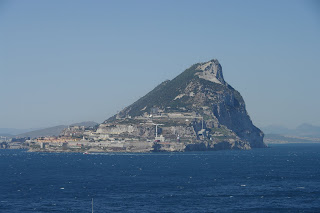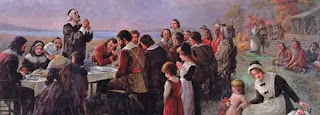Upon This Rock I Will Build My Church
Jesus tells us to build our homes on the rock and not on the sand. The rock, of course, is Jesus Himself.
This is confirmed in a later conversation Jesus had with Simon Peter. In answer to Jesus's question of who do you say I am, Peter says: "You are the Christ, the Son of the living God." Jesus then blesses Peter for speaking what His Father in Heaven has impressed him with (taken from Matthew 16:15-18).
Then Jesus says something that has been misunderstood by so many people.
"And I also say to you that you are Peter, and upon this rock I will build My church" (Matthew 16:18)
Many people look at this quickly and think that Jesus is saying Peter is his heir apparent and Peter will be responsible for building the church. As we can see in the Book of Acts, Peter is very important in the early church, he is not the leader. That honor falls to James, a brother of Jesus, as we can see from Acts 15.
In Matthew 16:18 there are two distinct points here and the English translation does not make the points clear. It is only when you look at the original Greek behind the translation when you realize what Jesus is really saying.
The second "and" should actually be rendered "but" since the first phrase "you are Peter" is not connected with the second phrase "upon this rock I will build My church" but is in contrast to it.
WHAT? How can I say this when nearly all translations have the word "and". Additionally, the original Greek has the word "kai" which means "and".
Simple. The Greek for Peter is "petros" which means a small stone similar to one you would find in the bottom of a stream or on a trail; these stones are easily moved. We know from the rest of the Gospels that despite Peter's proclamations of loyalty, he abandoned Jesus when Jesus was taken prisoner and then he denied Jesus three times. Peter was very much an easily moved stone.
Contrast the small stone that Jesus calls Simon BarJona (which means Simon, son of Jonah) to the definition of the word "rock" in the second phrase. The Greek for this rock is "petra" which means a massive rock formation similar to the Rock of Gibraltar. This rock is unmovable and unshakable. Jesus is talking about Himself and His word. That is what He will build His church upon.
Jesus makes a big deal about how God has revealed to Peter that He is the Son of God and the Christ. Jesus also makes it clear that this knowledge is the foundation upon which His church will be built.
However, Jesus also makes clear that even though Peter got the special revelation of this knowledge, Peter is not to think of himself too highly. After all, he is but a pebble that can easily be moved since he is a flawed human being. The knowledge, itself, is the rock that cannot be moved since it is the absolute truth. That is what Jesus will build His church upon.




Comments
Post a Comment